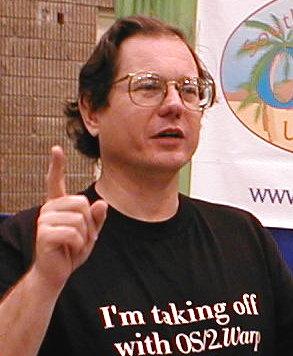 |
|
Next Meeting: Sat, TBD
Meeting Directions
|
Navigation:
20 Most Recent Documents
Search Archives
Index by date,
title,
author,
category.
|
|
|
Features:
Mr. Know-It-All
Ink
Download!
|
|
|
|
|
|
|
|
| SCOUG:
Home
Email Lists
SIGs (Internet, General Interest, Programming, Network, more..)
Online Chats
Business
Past Presentations
Credits
Submissions
Contact SCOUG
Copyright SCOUG
|
|

Pictures from Sept. 1999
|
|
The views expressed in articles on this site are those of their authors.
|
|

SCOUG was there!
|
|
|
Copyright 1998-2026, Southern California OS/2 User Group.
ALL RIGHTS RESERVED.
SCOUG, Warp Expo West, and Warpfest are trademarks of the
Southern California OS/2 User Group.
OS/2, Workplace Shell, and IBM are registered trademarks of
International Business Machines Corporation.
All other trademarks remain the property of their respective owners.
The Southern California OS/2 User Group
USA
|
|
|

|
Randell Flint caught the OS/2 bug in 1987 and has hung on ever since.
It's been a bumpy ride, to be sure, but one he's proud of. He designed
and developed Relish, one of the first applications for OS/2 and the
hallmark product of Sundial Systems Corporation which he founded. As a
founding member of the Southern California OS/2 User Group, Randell has
always strongly advocated the technical advantages of OS/2.
|
- An Argument for OS/2 Exploitation
To get the optimum
benefits from OS/2, you need applications that take advantage of the
special things OS/2 has to offer, that really exploit OS/2. Other applications just won't do as much for you. (2/1/1995)
|
|